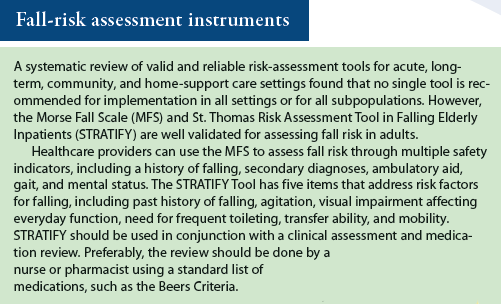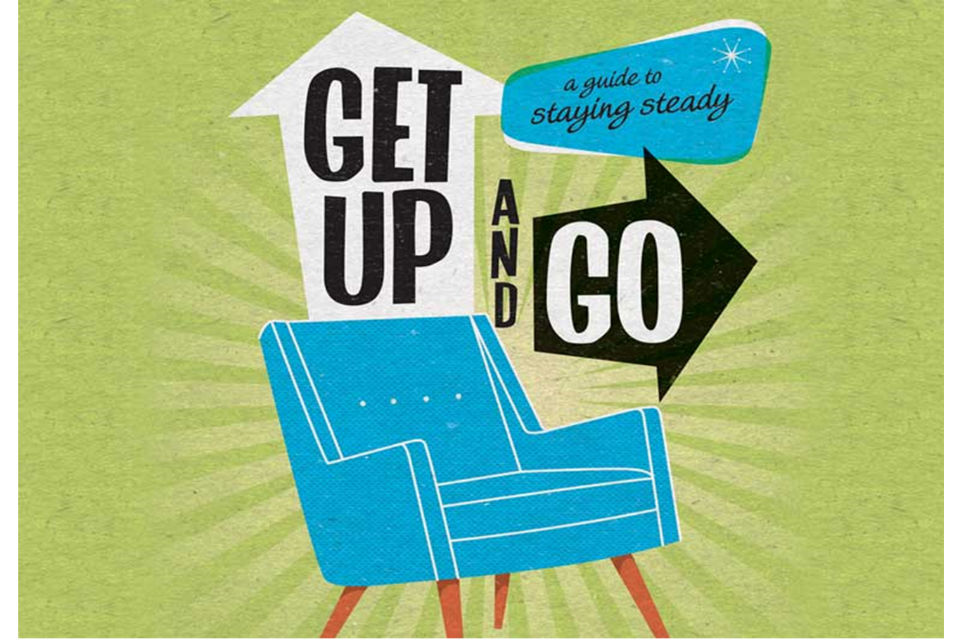The Single Strategy To Use For Dementia Fall Risk
Table of ContentsThe Best Strategy To Use For Dementia Fall RiskSome Ideas on Dementia Fall Risk You Should KnowThe Greatest Guide To Dementia Fall RiskThe Best Strategy To Use For Dementia Fall RiskDementia Fall Risk Things To Know Before You Buy
In the neighborhood, inadequate street illumination or vulnerable creeks and landfills may likewise cause accidents. Autumns Threat Analysis Device (FRAT) is a 4-item falls-risk screening device for sub-acute and residential treatment. The FRAT has 3 sections: fall danger status, danger factor list, and activity plan. A Loss Risk Status consists of data about background of recent drops, medications, emotional and cognitive standing of the individual.If the person ratings on a threat element, the corresponding number of points are counted to the client's fall danger rating in the box to the far. If a person's autumn risk score totals five or higher, the person goes to high threat for drops. If the patient ratings just four points or reduced, they are still at some threat of dropping, and the nurse ought to use their finest clinical evaluation to take care of all fall threat elements as component of an all natural care strategy.
These common strategies, as a whole, help establish a risk-free atmosphere that minimizes unintentional drops and marks core preventive steps for all individuals. Indicators are essential for patients in danger for falls. Healthcare suppliers need to recognize who has the condition, for they are in charge of implementing actions to advertise individual security and protect against drops.
The Main Principles Of Dementia Fall Risk
As an example, wristbands should consist of the client's last and given name, date of birth, and NHS number in the UK. Details ought to be printed/written in black versus a white background. Just red color must be utilized to signal special client standing. These recommendations are consistent with existing developments in client recognition (Sevdalis et al., 2009).
Items that are too much might need the individual to reach out or ambulate unnecessarily and can potentially be a threat or add to drops. Aids protect against the patient from going out of bed with no aid. Registered nurses reply to fallers' phone call lights quicker than they do to lights started by non-fallers.
Aesthetic disability can significantly trigger falls. Hip pads, when put on effectively, might lower a hip fracture when fall takes place. Keeping the beds closer to the floor reduces the danger of drops and significant injury. Placing the mattress on the floor dramatically lowers loss threat in some health care setups. Reduced beds are made to decrease the range an individual drops after moving out of bed.
Facts About Dementia Fall Risk Revealed
Patients who are high and with weak leg muscles that attempt to remain on the bed from a standing position are likely to drop onto the bed since it's too low for them to reduce themselves safely. If a tall client efforts to obtain up from a reduced bed without help, the individual is likely to drop back down onto the bed or miss out on the bed and drop onto the flooring.
They're designed to promote prompt rescue, not to avoid drops from bed. Distinct alarm systems can likewise advise the individual not to rise alone. The use of alarm websites systems can additionally be a substitute for physical restraints. Aside from bed alarm systems, enhanced supervision for high-risk clients also may assist avoid drops.

Individuals with a shuffling gait rise fall possibilities considerably. To reduce loss threat, footwear should be with a little to no heel, slim soles with slip-resistant tread, and sustain the ankle joints.
About Dementia Fall Risk
People, particularly older adults, have actually minimized visual ability. Illumination an unfamiliar environment helps boost presence if the patient must get up in the evening. In a study, homes with adequate lighting report fewer drops (Ramulu et al., 2021). Improvement in lights in your home might decrease autumn prices in older grownups (Dementia Fall Risk). Using stride belts by all health and wellness treatment suppliers can promote safety and security when helping people with transfers from bed to chair.

Sitters work for ensuring a safe, safeguarded, and safe atmosphere. Studies showed very low-certainty evidence that sitters decrease autumn risk in severe treatment healthcare facilities and just moderate-certainty that alternatives like video monitoring can decrease sitter use without raising autumn threat, recommending that caretakers are not as valuable as initially thought (Greely et al., 2020).
All About Dementia Fall Risk

Enhanced physical conditioning minimizes the risk for falls and limits injury that is sustained when fall transpires. Land and water-based exercise programs may be similarly beneficial on balance and gait and consequently minimize the risk for drops. Water exercise may add a favorable benefit on balance and stride for ladies 65 years and older.
Chair Rise Workout is an easy sit-to-stand workout that assists enhance the muscles in the thighs and buttocks and enhances movement and independence. The goal is to do Chair Surge exercises without using hands as the client comes to be more powerful. See resources section for a detailed instruction on just how to do Chair Increase workout.